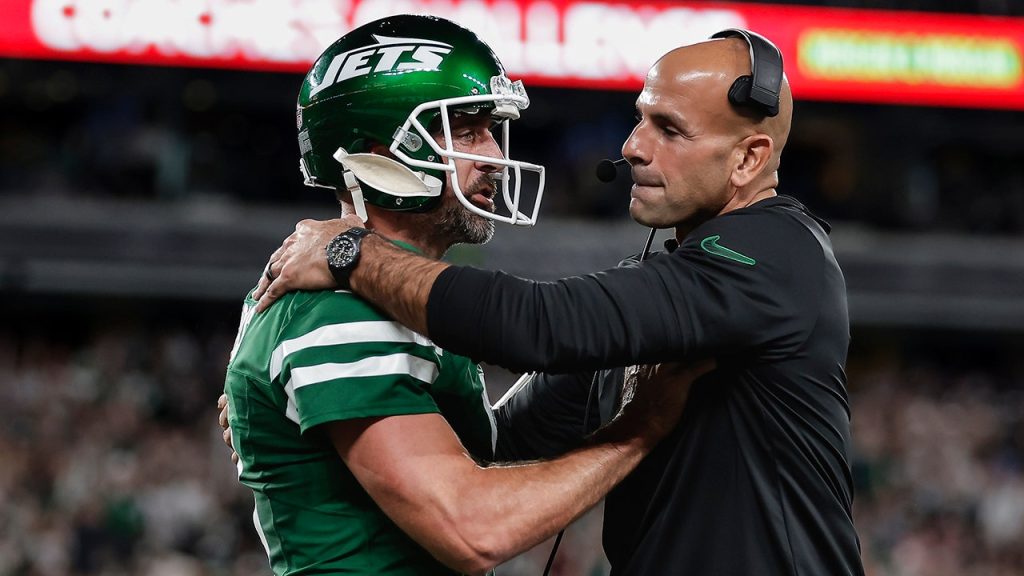After the New York Jets experienced several offensive pre-snap penalties in a game against the Broncos, head coach Robert Saleh initially suggested that they should consider adopting Aaron Rodgers’ cadence to address the issue. However, Rodgers did not agree with this idea, stating that holding the players accountable for their mistakes would be a more suitable approach. In response to the backlash from Rodgers, Saleh clarified that while they would continue to push the envelope with cadence, operations such as getting in and out of the huddle and communication needed improvement.
Saleh emphasized the importance of maintaining a high level of cadence as part of the team’s identity, but acknowledged that work needed to be done in terms of operational efficiency. He highlighted the need to improve aspects such as getting to the line of scrimmage and communication to minimize errors and enhance overall performance. While Saleh was firm on maintaining a strong cadence, he recognized the areas that required attention and improvement within the team’s operations to avoid similar mistakes in the future.
Following Rodgers’ comments urging accountability among the players, Saleh seemed to have taken the message to heart and reconsidered his initial stance on potentially adopting Rodgers’ cadence. This exchange between Saleh and Rodgers highlighted the differences in their perspectives on how to address the issue of pre-snap penalties and the roles of cadence and operational efficiency in the team’s performance. Saleh’s statements revealed a balance between maintaining the team’s unique identity through cadence and addressing weaknesses in operational aspects to enhance overall effectiveness.
The discussion surrounding the Jets’ pre-snap penalties and potential solutions reflected the complexities of managing an NFL team and the different strategies and approaches that coaches may consider in response to challenges. Saleh’s initial proposal to explore Rodgers’ cadence as a solution to the team’s penalty issues generated a discussion that extended to the importance of player accountability and operational efficiency. By emphasizing the need for continuous improvement in operational aspects while maintaining a strong cadence, Saleh demonstrated a willingness to adapt and address challenges to enhance the team’s performance moving forward.
Overall, the exchange between Saleh and Rodgers shed light on the intricacies of coaching decisions and strategies in response to in-game challenges such as pre-snap penalties. While different perspectives were presented regarding the best approaches to address these issues, the importance of maintaining a balance between preserving the team’s identity and addressing operational weaknesses emerged as a key takeaway from the discussion. This interaction between Saleh, Rodgers, and the broader context of the Jets’ performance offered insights into the complexities of managing an NFL team and the considerations that coaches must navigate to optimize performance and address challenges effectively.


